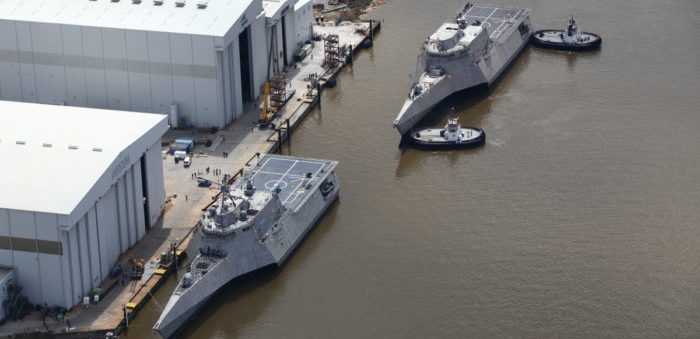Federal agents visited Littoral Combat Ship manufacturer Austal USA in its Mobile, Alabama, shipyard as part of an unspecified investigation involving the US Navy. Moreover, Austal was also under investigation by the Australian Securities and Investments Commission, regarding market updates on losses around the Independence-class LCS.
Commenting on the investigation, Austal said that it is cooperating with the authorities. However, it did not reveal any more information regarding the nature of the investigation.
We are continuing business as usual, executing our existing and recently awarded contracts
The Mobile shipyard employs 4,000 workers and builds the Spearhead-class Expeditionary Fast Transport and Independence-class Littoral Combat Ship for the Navy. What is more, last week. Australian media reported that Austal was being investigated by the Australian Securities and Investments Commission over market updates related to losses around the Independence-class LCS. Specifically, the Australian authorities gave emphasis on statements that Austal made about the sudden increase in costs, related.with finishing USS Jackson (LCS-6).
[smlsubform prepend=”GET THE SAFETY4SEA IN YOUR INBOX!” showname=false emailtxt=”” emailholder=”Enter your email address” showsubmit=true submittxt=”Submit” jsthanks=false thankyou=”Thank you for subscribing to our mailing list”]
According to sources, Jackson was a challenging ship for two reasons. Firstly, it was the first ship Austal USA had built as the prime contractor, while USS Independence (LCS-2) and USS Coronado (LCS-4) were built at the Austal yard with General Dynamics serving as the prime contractor. Secondly, Jackson was the first LCS to be built under a block buy contract from the Navy. Austal has carried out a new manufacturing process for the block buy ships, aiming to reduce cost and schedule down the line through serial production. However, because Jackson was the first serial production ship, there were still lessons to be learned.
In fact, Austal officials admitted on December 2015, that their ability to increase LCS earnings through these new production processes did not live up to expectations. In addition, Austal had mentioned that it has a strong balance sheet. Nevertheless, in its Fiscal Year 2016 annual report, it reported a loss of A$84.2 million, compared to a profit of A$53.2 million in 2015.
Of the loss, a significant part was the US $115 million charge Austal recorded to account for the increased cost in LCS construction. This increase in cost was related to necessary work to make the ships comply with the Navy’s military shock testing. Namely, Jackson performed full ship shock trials in June and July 2016, which required the shipyard to prepare for the trials and then carry out maintenance to repair anything that got damaged during the underwater blast.






























































